I have a habit of counting the pages and chapters first. With nearly 600 pages and a very large reprint, I could already imagine how captivating this work would be to readers. I'm a former soldier, an infantryman and then an artilleryman, with no prior knowledge of fuel, yet I was deeply impressed by the chapters and the writing. General Hau is truly a genuine writer. A writer in military uniform, with the voice of a "writer-soldier." A phrase that those who have served in the military often use to describe those who live with them, understand them, love them, and explore them thoroughly, from their tragic to their heroic aspects.
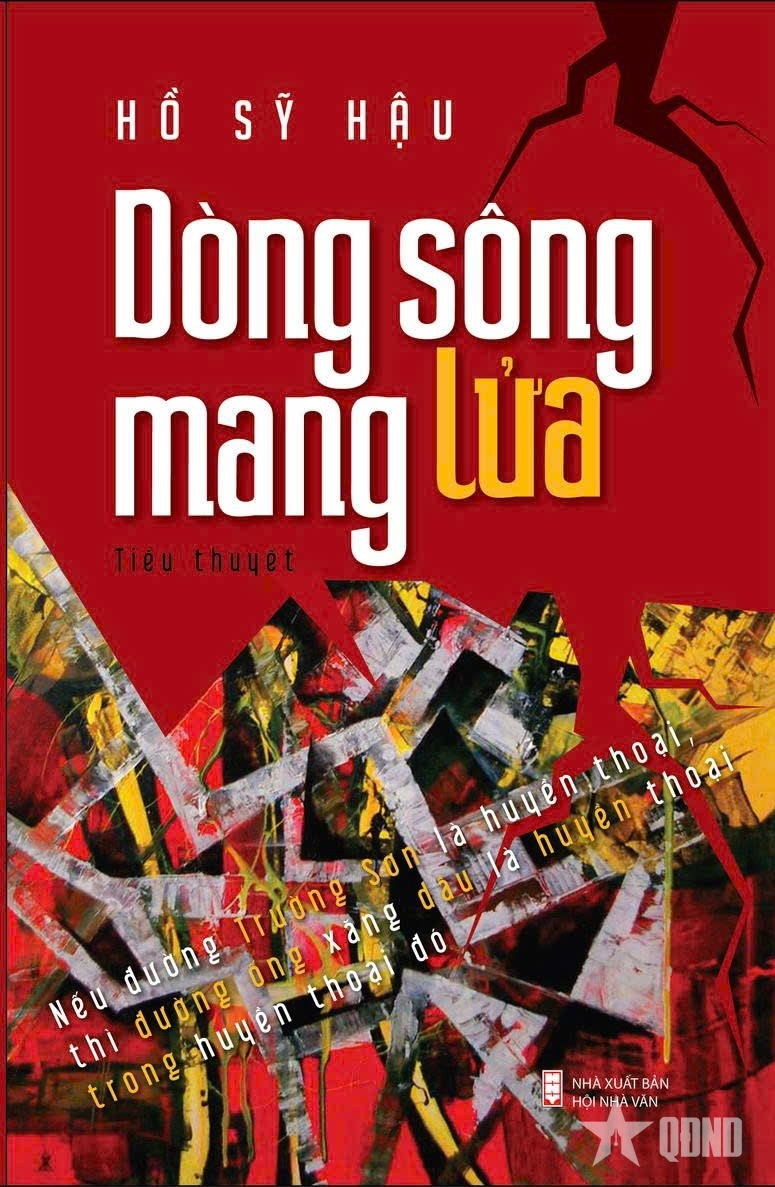 |
| The novel "The River Carrying Fire" by Major General and writer Ho Sy Hau. |
The book cover says "novel." I consulted a dictionary and wanted to clarify that it should be a "historical novel," not simply a novel, because the dictionary defines a novel as a work of fiction by a writer based on a plot, with the goal of promoting good. However, while reading, I felt that it featured real people like General Dinh Duc Thien, General Nguyen Chon, and General Dong Sy Nguyen, and real events like the daily work of the fuel depot soldiers. I don't dare delve into academic details, but that's what I meant!
Lieutenant General Dong Sy Nguyen, former Politburo member, former Vice Chairman of the Council of Ministers (now the Government), and former Commander of the Truong Son Army, said: "If the Ho Chi Minh Trail is a legend, then the oil pipeline is a legend within that legend." Ho Sy Hau, through his life and combat experiences, proved this statement in literature, describing the hardships, difficulties, and fierce sacrifices of the Truong Son oil pipeline troops.
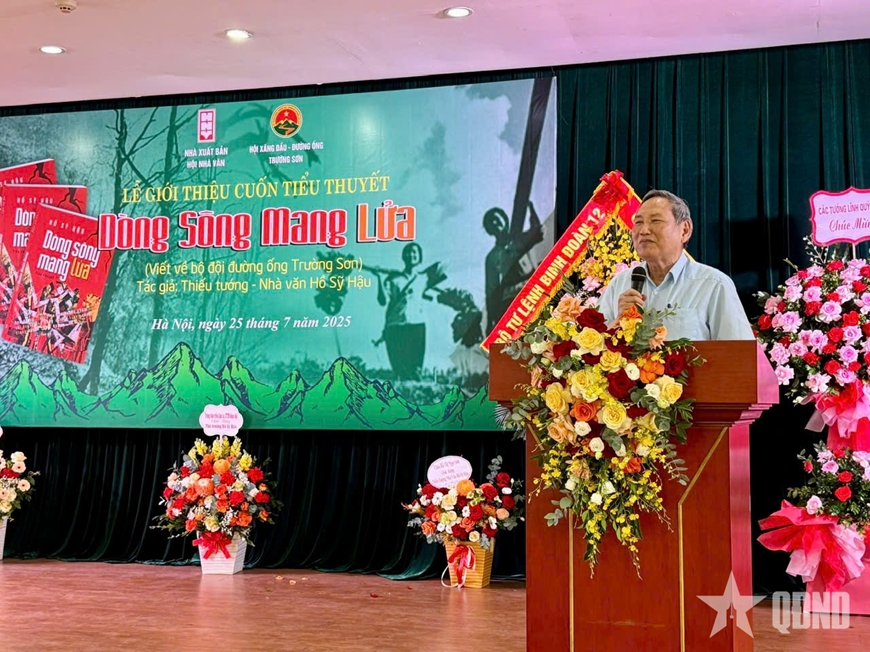 |
| Lieutenant General Phung Khac Dang speaks at the launch ceremony of the novel "The River Carrying Fire," July 2025. Photo: Nguyen Trang |
I appreciate the author's writings because his purpose is not only to recreate the history of the Truong Son Oil Pipeline Troops, but also to help future generations better understand the silent work that previous generations did. I value the author even more because he writes not for fame, but because from the very first page, he wrote: "Dedicated to my comrades…". These are words of gratitude from survivors of the bombings, written to honor the heroes and martyrs who did not hesitate to sacrifice their youth and blood for the cause of liberating the South and unifying the country.
The first chapter of the book is titled "Gasoline and Blood." Gasoline and blood, when considered from a physical and chemical perspective, are completely different. However, in his writing, he combines them as one, because gasoline is as essential as blood to soldiers, especially those on the battlefield, particularly those in mechanized units. He uses the words "gasoline" and "blood" to express their intertwined relationship on the battlefield. Personally, I would prefer to write "gasoline as blood." But in any case, these two phrases alone constitute a wonderful literary image, perfectly capturing both the literal and figurative meanings of the battlefield.
The book's chapter titles, such as "Difficult Beginnings," "Western Route," "Pha Bang Key Point," "Lam Son 719," etc., vividly portray the tragedy and heroism of the Truong Son oil pipeline troops in particular, and the Truong Son troops in general, of which he himself was a participant, writing with heartfelt sincerity. He wrote about the Truong Son oil pipeline troops, but I think he added a bright chapter to the tradition of Uncle Ho's troops.
I like Ho Sy Hau's writing style because it's so real. It's as real as our own experiences. For example, the story of a group of men coming to sleep in a forest full of girls is a special event. A few girls adjust their hair, straighten their clothes, and excitedly greet each other as fellow countrymen. Then there's the story of the old cadres urging a young engineer fresh out of school to ask some young female volunteers for some shrimp paste to dip their boiled pumpkins in. The girls were stunned for a moment, then shrieked: "Oh my God! You've just arrived and you're already asking for 'shrimp paste'!" General Hau put the words "shrimp paste" in quotation marks. This is the implied meaning. I don't know if it's accurate or not. As a soldier, I think this detail speaks to the longing of young people.
The author mentions two lines of poetry that the commander heard echoing from a boat on the Quang Binh River: "My dear, go home and get married / I'm going to 559, who knows when I'll be back." Reading these two lines made me think of farewell ceremonies for comrades going on missions knowing they would die: the "living funeral" ceremony. We infantry soldiers often had such ceremonies. The book is about the hardships and fierce battles, but I didn't feel stiff because the author interwoven timeless human stories, including love between men and women.
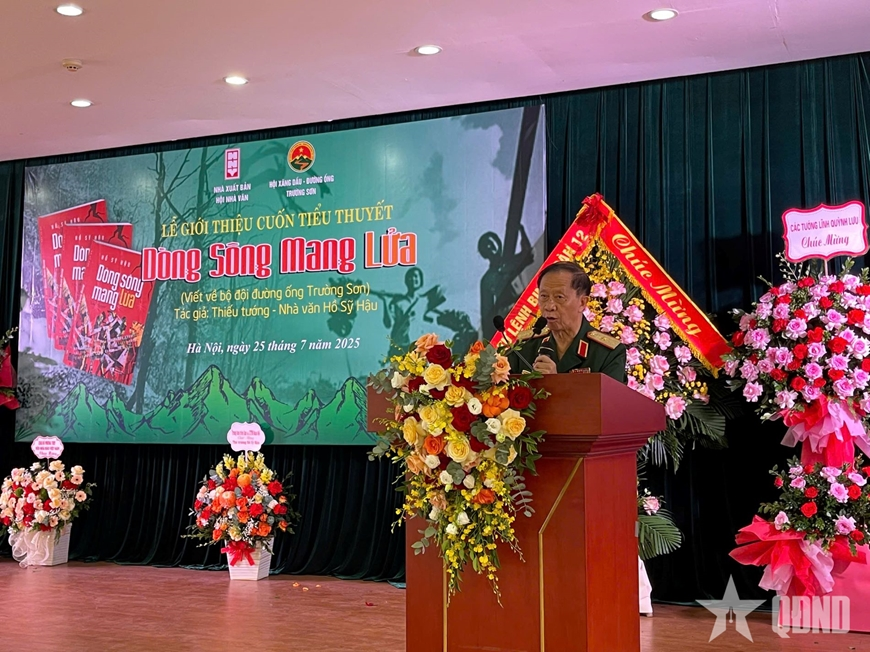 |
| Major General and writer Ho Sy Hau speaks at the launch ceremony of his novel "The River Carrying Fire," July 2025. Photo: Nguyen Trang |
The book captivates readers because it is authentic and relatable to veteran soldiers like us, and I believe younger generations will seek it out to learn more about history, as poet Vu Quan Phuong said: "It is full of valuable documents, like a comprehensive chronicle, perhaps the most complete and richest account of the Truong Son Oil and Gas Troops." I am even more confident that students will read it because the author was once a student and engineer. They will read it to see how the intellectuals of the past studied, worked, fought, and loved.
As for me, I have read and will continue to read to learn more about the fuel soldiers who wrote the legend of the Truong Son Road.
PHUNG KHAC DANG,
Source: https://www.qdnd.vn/van-hoa/van-hoc-nghe-thuat/ky-uc-ve-mot-thoi-bao-lua-846198














































































































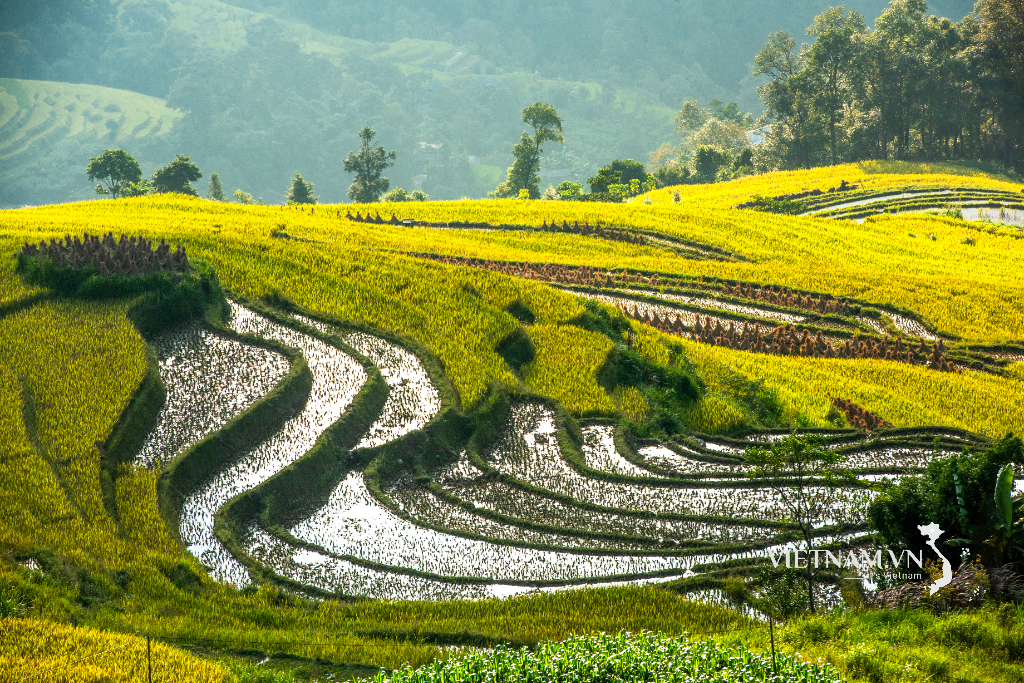
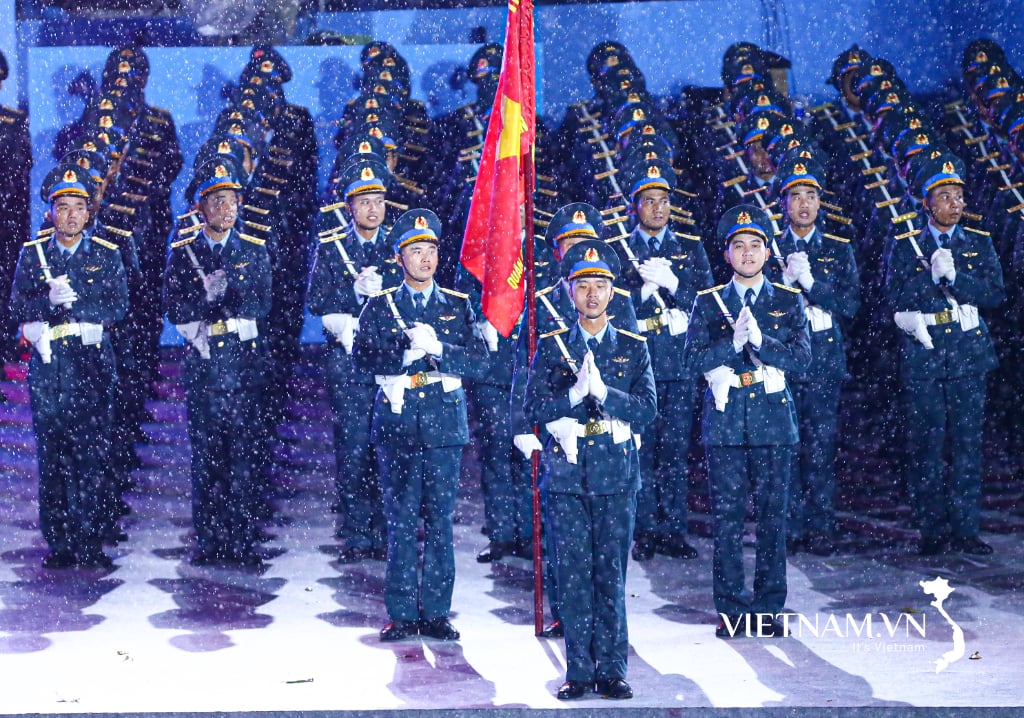
Comment (0)